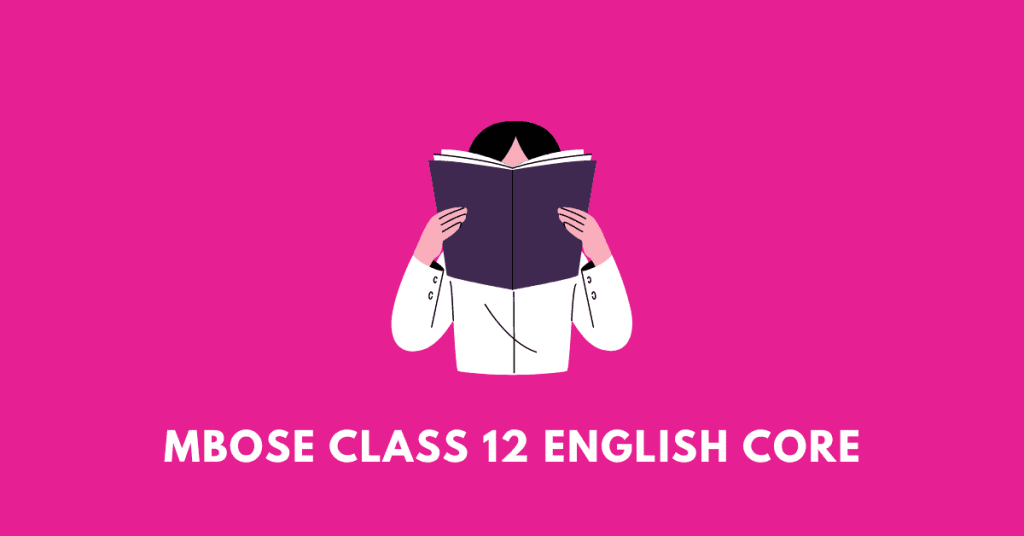Get summaries, questions, answers, solutions, notes, extras, PDF of Class 12 English Core textbook (Resonance), which is part of the syllabus of students studying under MBOSE (Meghalaya Board). These solutions, however, should only be treated as references and can be modified/changed. Please select the chapter you need and proceed.
| Prose |
| Indigo |
| The Rattrap |
| Lost Spring: Stories of Stolen Childhood |
| Deep Water |
| Poetry |
| Keeping Quiet |
| A Thing of Beauty |
| Caring for Animals |
| And So It Eventually Happened |
About MBOSE Class 12 English Core (Resonance)
MBOSE Class 12 English Core (Resonance) focuses on both prose and poetry and offers students a diverse range of literary works that help in understanding various themes, historical contexts, and cultural narratives.
In the prose section, one of the key texts is “Indigo” by Louis Fischer. This piece details Mahatma Gandhi’s first significant political effort in India, the Champaran Satyagraha, which highlighted the plight of indigo farmers oppressed under the ‘tinkathia’ system. The narrative not only chronicles Gandhi’s strategy of civil disobedience but also underscores the broader themes of justice, self-reliance, and the power of collective action. Fischer’s work provides historical insight into the methods and impacts of non-violent resistance.
Another notable story is “The Rattrap” by Selma Lagerlöf. It revolves around a vagabond who perceives the world as a rattrap, believing that material wealth and comforts are bait to trap people. The story explores themes of kindness and transformation, showing how compassionate treatment can bring out the inherent goodness in individuals.
“Lost Spring” by Anees Jung presents a stark commentary on child labour in India. Through the lives of street children and child labourers, Jung paints a poignant picture of poverty and a lack of opportunities. This essay urges readers to reflect on social inequalities and the urgent need for educational and economic reforms.
“Going Places” by A.R. Barton delves into the dreams and aspirations of a teenage girl. The story examines themes such as hero worship, sibling relationships, and the emotional rollercoaster of adolescence. It provides a relatable narrative for young readers, reflecting their own fantasies and the reality of growing up.
William Douglas’s “Deep Water” is a personal essay about overcoming the fear of water. It emphasises the importance of confronting fears to lead a fuller life. Through his own experience of learning to swim, Douglas imparts valuable lessons on courage and resilience.
James Joyce’s “Araby” is a tale of youthful infatuation and disillusionment. The protagonist’s journey to the bazaar in pursuit of a gift for his crush leads to a poignant realisation about the gap between dreams and reality. This story captures the essence of adolescent longing and the harsh lessons of growing up.
In the poetry section, “An Elementary School Classroom in a Slum” by Stephen Spender brings attention to the harsh realities faced by children in impoverished areas. The poet highlights the stark contrast between their grim surroundings and the world of opportunity that remains out of reach. Spender’s work is a call to action for societal and educational reforms.
“Keeping Quiet” by Pablo Neruda advocates for introspection and peaceful coexistence. The poem emphasises the need to pause and reflect on our actions, fostering a deeper connection with nature and each other. Neruda’s plea for silence and stillness serves as a reminder of the importance of inner peace and global harmony.
John Keats’s “A Thing of Beauty” celebrates the enduring and uplifting power of beauty in nature. Extracted from his longer work, Endymion, this poem underscores how beautiful things provide comfort and joy, sustaining us through life’s challenges.
Jon Silkin’s “Caring for Animals” addresses the ethical treatment of animals. The poem reflects on humanity’s responsibility towards other living beings, advocating for compassion and respect for animal rights.
Finally, R. Parthasarathy’s “And So It Eventually Happened” explores the theme of family bonding. The poet captures the emotions and memories shared during family reunions, emphasising the importance of familial ties and the comfort they bring.

Get notes of other boards, classes, and subjects
